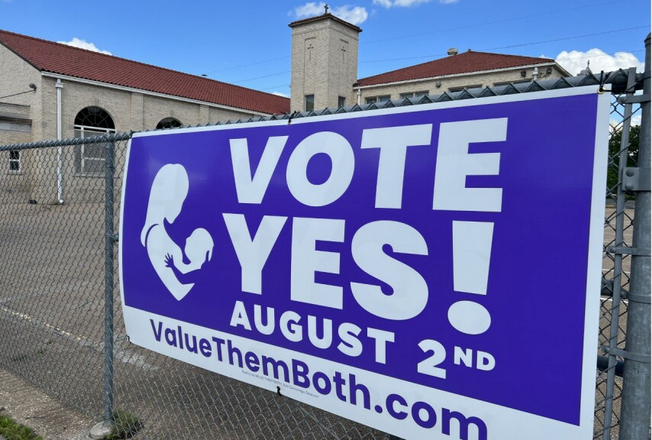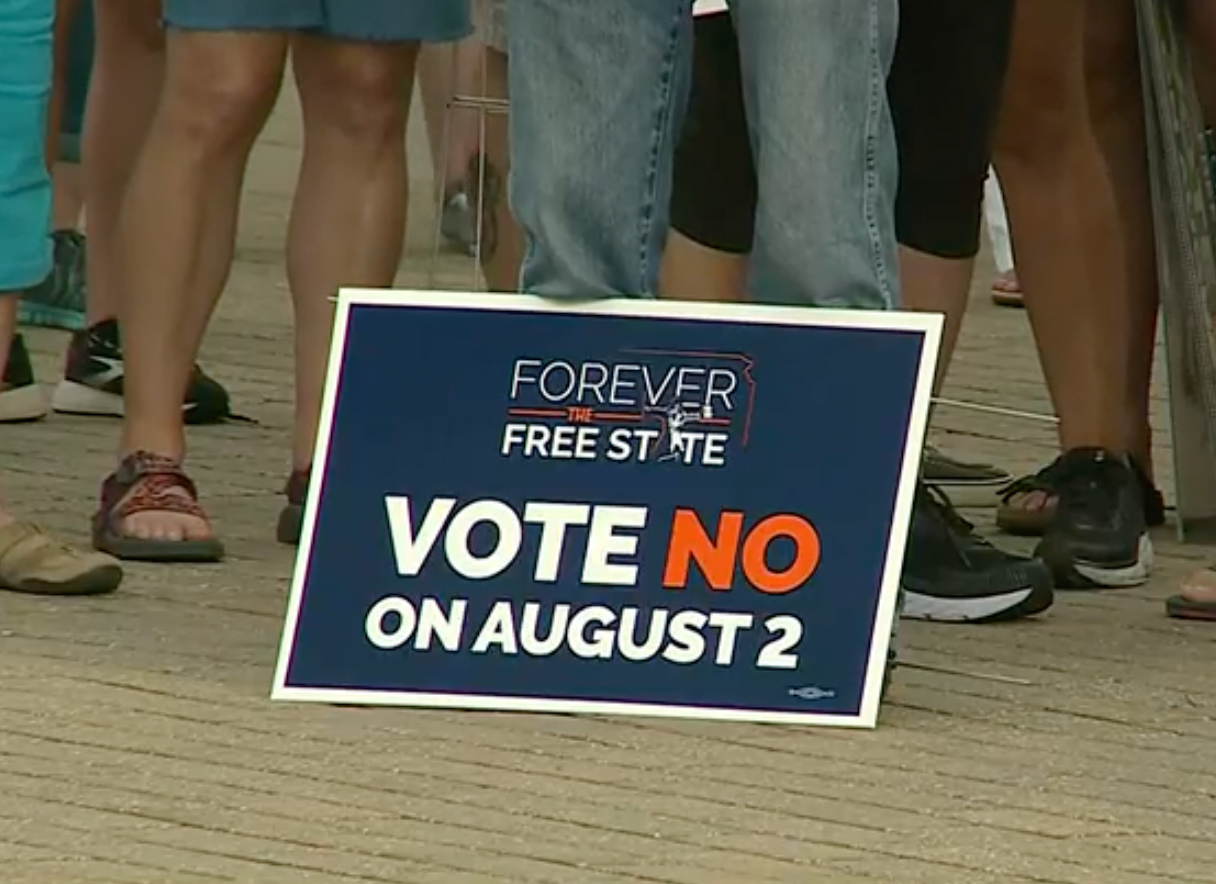
NICK GOSNELL
Hutch Post
HUTCHINSON, Kan. — The potential for any level of abortion restrictions is on the table if the legislature's power is clarified through a positive vote for the amendment that is on the ballot August 2, according to a constitutional law professor from the University of Kansas.

"If people approve the amendment, the Kansas Constitution would place no limits on the regulation of abortion unless the particular form of the regulation violated some other right," said Richard E. Levy, J.B. Smith Distinguished Professor of Constitutional Law at the University of Kansas. "For example, if the law said women of one race could get an abortion, but women of another race could not, that would violate equal protection. But, if we're just looking at the content of abortion regulation generally, there would be no protection under the Kansas constitution."
The Dobbs ruling that overturned Roe v. Wade generally left the abortion regulation question to the states, but even then, there is a standard that will be looked at on the federal level.
"Under the U.S. Constitution, abortion laws would have to pass the rational basis test," Levy said. "They would have to serve a legitimate governmental interest and be reasonably related to that legitimate governmental interest. Sometimes laws can be so arbitrary and irrational, or could be based on impermissible political motives in a way that would make them invalid under the rational basis test. That's very rare, but it can happen."
The rational basis test is generally considered the least stringent test of judicial review. In other words, if the amendment passes, the legislature's actions, whatever they are, would most likely be upheld. Right now, the Kansas Supreme Court's holding in Hodes & Nauser v. Schmidt is controlling and that decision infers a right to abortion in the Kansas Constitution.
"The Hodes case said that Section 1 of the Kansas Constitution's Bill of Rights, which expressly recognizes natural rights that individuals posess, includes a right to bodily integrity and self-determination and that right of bodily integrity and self-determination meant that women had the right to decide whether to carry a child to term or have an abortion."
The concerns of some that leaving the Hodes ruling in place could make Kansas a destination for women traveling to terminate their pregnancy would appear to be founded, if the Guttmacher Institute's analysis of the issue proves to be correct. According to the Institute, all neighboring states to Kansas except for Colorado would be either certain or likely to ban abortion.

Both Republican candidate and current Kansas Attorney General Derek Schmidt and current Kansas Governor Laura Kelly chose not to send direct statements to Hutch Post when contacted for this story, but spokespeople for both sides did send statements.
Schmidt campaign manager CJ Grover:
“The choice in the governor's race on this issue is clear. AG Schmidt supports the Value Them Both amendment and the right of Kansans, through their elected representatives, to regulate the abortion industry. Laura Kelly opposes all abortion restrictions at any stage of a pregnancy. She’s opposed painful late-term abortion bans, requirements that parents be notified of a minor child seeking an abortion, and basic health and safety requirements at abortion clinics. Kansas is and will become an even greater destination for abortions on-demand if Laura Kelly and the pro-abortion groups spending millions on her behalf have their way.”
Communications Director for Gov. Kelly, Brianna Johnson:
“Governor Kelly believes a woman’s reproductive health care decisions should be between her and her physician. She will always review the legality and constitutionality of bills as she receives them, but as she’s said many times, she will oppose all regressive legislation that interferes with individual freedoms or threatens the strides we’ve made in recent years making Kansas a constructive place to do business.”
All properly registered Kansas voters can weigh in on the issue, regardless of party affiliation or the lack of it. The registration deadline for the primary is July 12.






